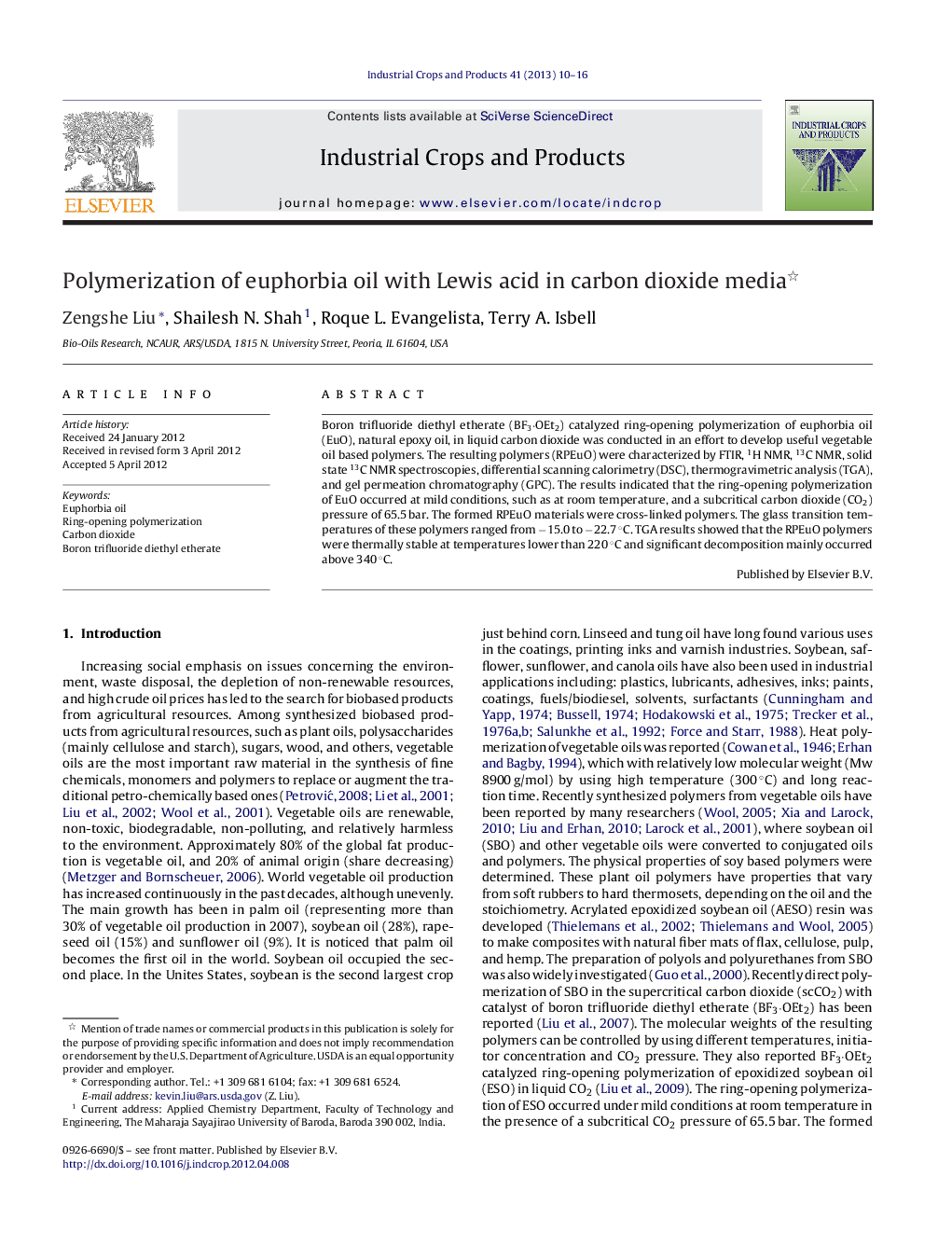| Article ID | Journal | Published Year | Pages | File Type |
|---|---|---|---|---|
| 4513882 | Industrial Crops and Products | 2013 | 7 Pages |
Boron trifluoride diethyl etherate (BF3·OEt2) catalyzed ring-opening polymerization of euphorbia oil (EuO), natural epoxy oil, in liquid carbon dioxide was conducted in an effort to develop useful vegetable oil based polymers. The resulting polymers (RPEuO) were characterized by FTIR, 1H NMR, 13C NMR, solid state 13C NMR spectroscopies, differential scanning calorimetry (DSC), thermogravimetric analysis (TGA), and gel permeation chromatography (GPC). The results indicated that the ring-opening polymerization of EuO occurred at mild conditions, such as at room temperature, and a subcritical carbon dioxide (CO2) pressure of 65.5 bar. The formed RPEuO materials were cross-linked polymers. The glass transition temperatures of these polymers ranged from −15.0 to −22.7 °C. TGA results showed that the RPEuO polymers were thermally stable at temperatures lower than 220 °C and significant decomposition mainly occurred above 340 °C.
Graphical abstractPlant oil, euphorbia oil (EuO), a natural epoxy oil, was polymerized in liquid carbon dioxide by Lewis acid at mild conditions.Figure optionsDownload full-size imageDownload as PowerPoint slideHighlights► Euphorbia oil, natural epoxy oil, is directly polymerized by ring-opening polymerization. ► There is no need of chemical modification, epoxidation, to get epoxy groups of the plant oil. ► Environmentally friendly media, carbon dioxide, was used at mild reaction conditions. ► Formed polymers are precursors converted into polymeric surfactants.
